
It will take you four nights to see Out 1 in its monolithic, uncut entirety at its run in Brooklyn this month. Four dedicated evenings or, if you're feeling hardy, most of a weekend.
Out 1 is one of the longest movies ever made — almost certainly the longest in terms of movies that tell a scripted story and that aren't intended to be sampled while playing on the wall of a gallery. It's a 775-minute beast, divvied up into eight sections that are each around the length of a regular feature. In the time it takes to watch Out 1, you could see the entire Lord of the Rings trilogy in its bloatiest extended editions. You could binge all of Season 1 of Orange Is the New Black. You could say fuck it and take a flight from New York to Hawaii in order to live out the rest of your days as a dangerous unqualified scuba instructor.
These options also involve a lot of sitting — Out 1, to its credit, comes with intermissions built in.
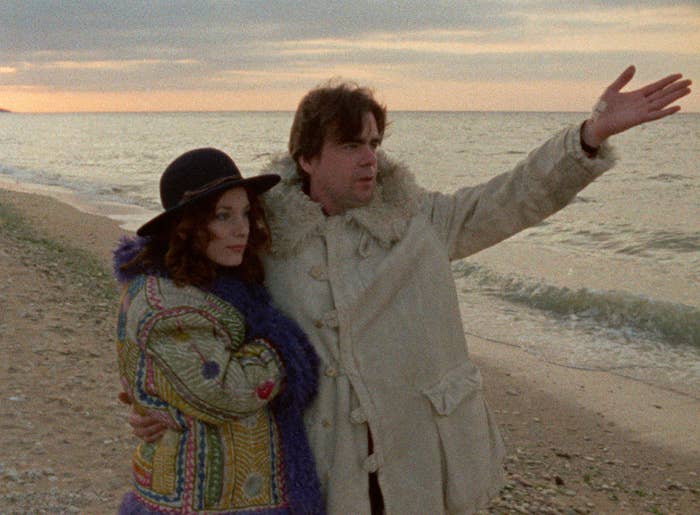
What is the point of seeing something this long? Other than that, like any other film, it might be good? (Because it is, but let's worry about that later.) Well, because you finally can. Out 1 is legendary for its run time and for its unavailability — it's one of the rarest of cinematic unicorns.
French New Waver Jacques Rivette completed it in 1971, and from then until now it's remained difficult-to-impossible to see, because a 13-hour movie is, unsurprisingly, a hair-raisingly impractical thing for a theater to show, and maybe not the easiest of sells, ticket-wise.
Out 1 is, to repurpose critic shorthand for things with a difficult pace or subject matter, literally a hard sit, in that after six hours, your butt may be sore. It's also spiritually one, as is any film that includes long stretches in which actors do improv exercises. BAM's plucky two-week programming of the restored film, kicking off on Nov. 4, technically counts as Out 1's first-ever theatrical release, 40-plus years after it first screened in France.
It'll have shorted stints elsewhere in the country, then in January, Out 1 will at last be released on home video in both its original (subtitled Noli Me Tangere) and its trimmed-down four-hour version (which is labeled, in serendipitous convergence with the newest James Bond installment, Spectre). Maybe it'll lose a little of its mythic luster when it's more easily available, but seeing it in its theatrical release is a major cinephile event and badge of honor, in sentiment somewhere between going to the Neutral Milk Hotel reunion tour and getting your picture on the wall of a restaurant for eating an entire five-pound hamburger — I can't believe I watched the whole thing.
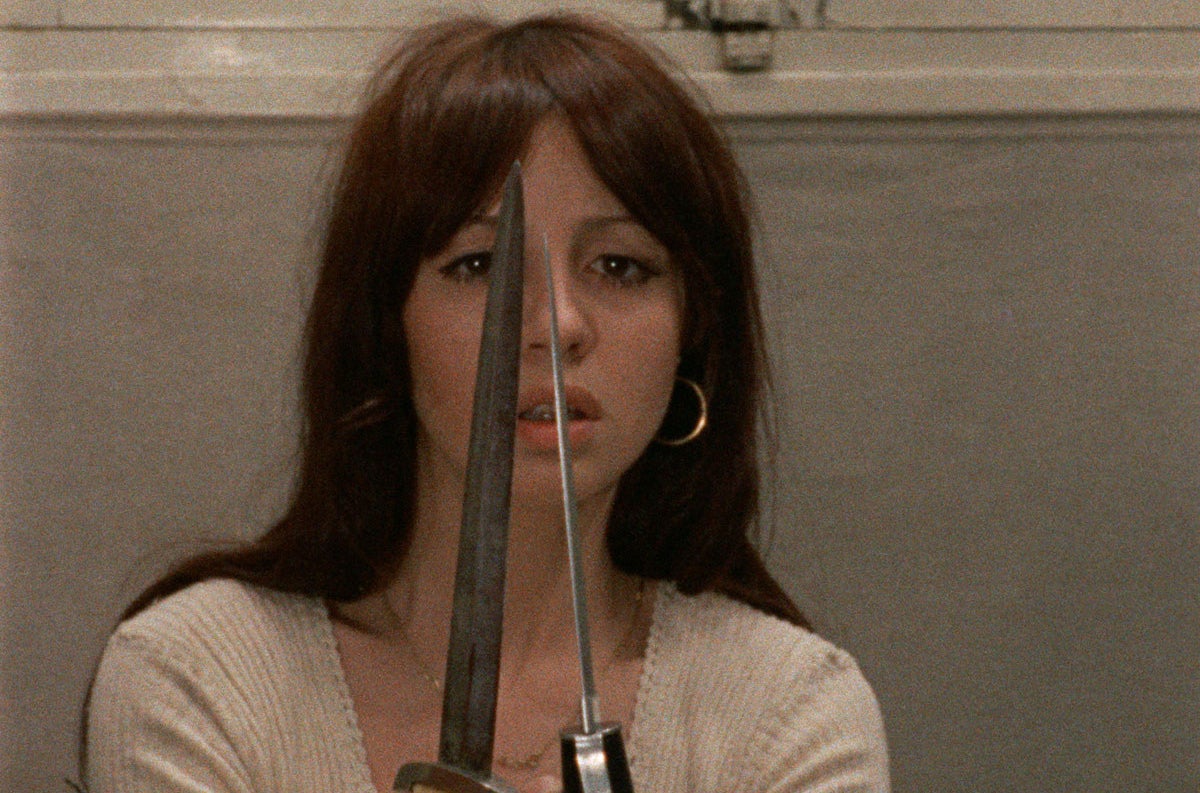
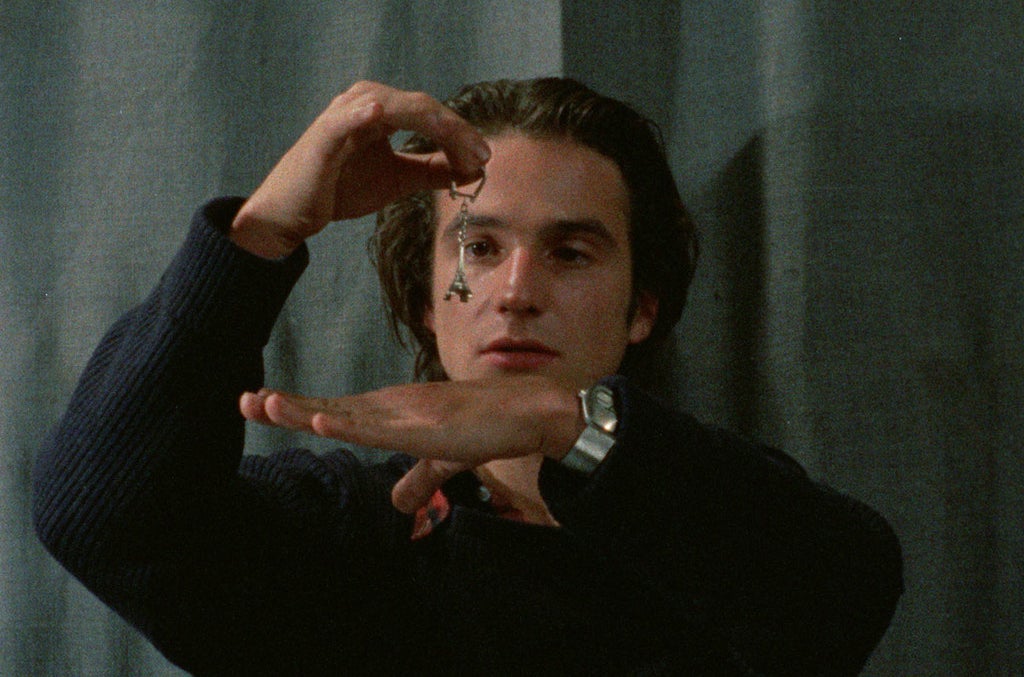
Because of some tech issues, I ended up seeing the movie in four chunks, but I'd been ready to opt for a marathon stretch. Having braved all seven and a half hours of Sátántangó one chilly February day three years ago while the rest of the world was held rapt by the Super Bowl, and more recently limbered up with the nearly five-hour director's cut of Wim Wenders' Until the End of the World, I felt like I'd discovered a secret about watching long movies, which is that the hard part is opting in in the first place. If committing to something so colossal sounds like a chore, in practice it actually feels crazily decadent once you decide to turn your time over and roll around in some sprawling work that probably doesn't pay much attention to the regular rules of how films operate. You dig in. You pack snacks.
Out 1 isn't a regular movie that just keeps going — it operates at a pace and with a structure that's brazenly insouciant, not bothering to try to hook you from the start or to set multiple stories in motion. For an audacious amount of time, it just is, unspooling on the strength of a pact that you're in this together for the long haul, asking you to examine what's on the screen and determine where the center is, if there's one at all. Halfway through it's maddening and feels like a film about nothing. All the way through it's tremendous and sad and feels like a film about everything. It exists as a whole or not at all.
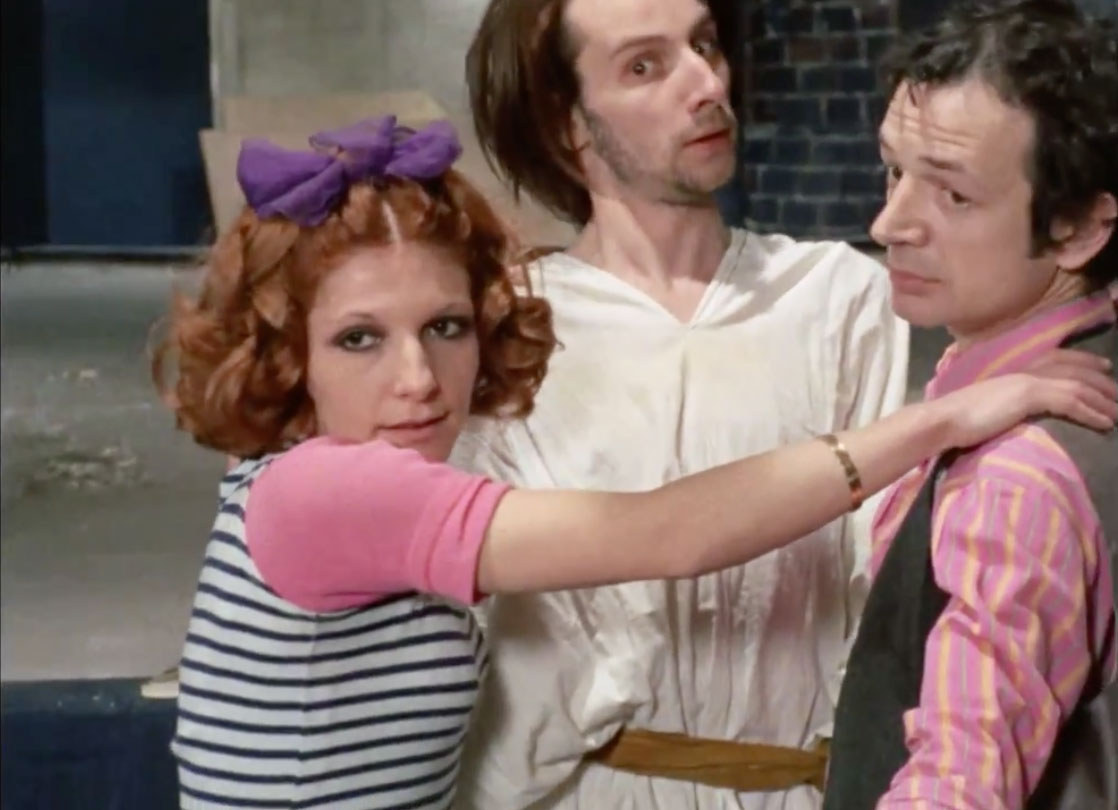
Out 1 might be rendered down to the story of how a pair of young Parisian street hustlers independently stumble across evidence of a secret society called the Thirteen, inspired by an organization of high-ranking, unscrupulous men of the same name that features in some stories by Balzac.
It's a conspiracy that, Pynchon-like, is revealed to be more compelling as an idea than it is in practice, where it turns out to have been barely real to begin with. The version of the Thirteen in Out 1 went on hiatus from whatever its goals were not long after it was formed.
Still, the concept of a shadowy consortium pulling society's strings is nevertheless entrancing to Colin (Jean-Pierre Léaud), who's been spending his days busking for change under the pretense of being deaf, and to Frédérique (Juliet Berto), a petty con artist who flirts and fibs her way into getting money from the men she encounters in cafés, and sometimes flat-out steals. It promises meaning or power to two people in drifting lives. It suggests some larger design.
But then there are the two theater troupes who command just as much screen time in separate threads, both of them working on avant-garde interpretations of Aeschylus that never get close to something that could be performed for an audience. One of the troupes, being directed by Lili (Michèle Moretti), seems at least to be aiming toward an end product, while the other, vaguely led by Thomas (Michael Lonsdale), never seems to get beyond discussions and acting exercises. "The point is to get people working together," Thomas explains to Sarah (Bernadette Lafont), a friend and maybe lover he recruits, only to find her exasperated by the endless process. Thomas, we learn, also likes the idea of being part of a group and is maintaining membership in at least two, even if they're not providing the kind of connection he's really looking for.
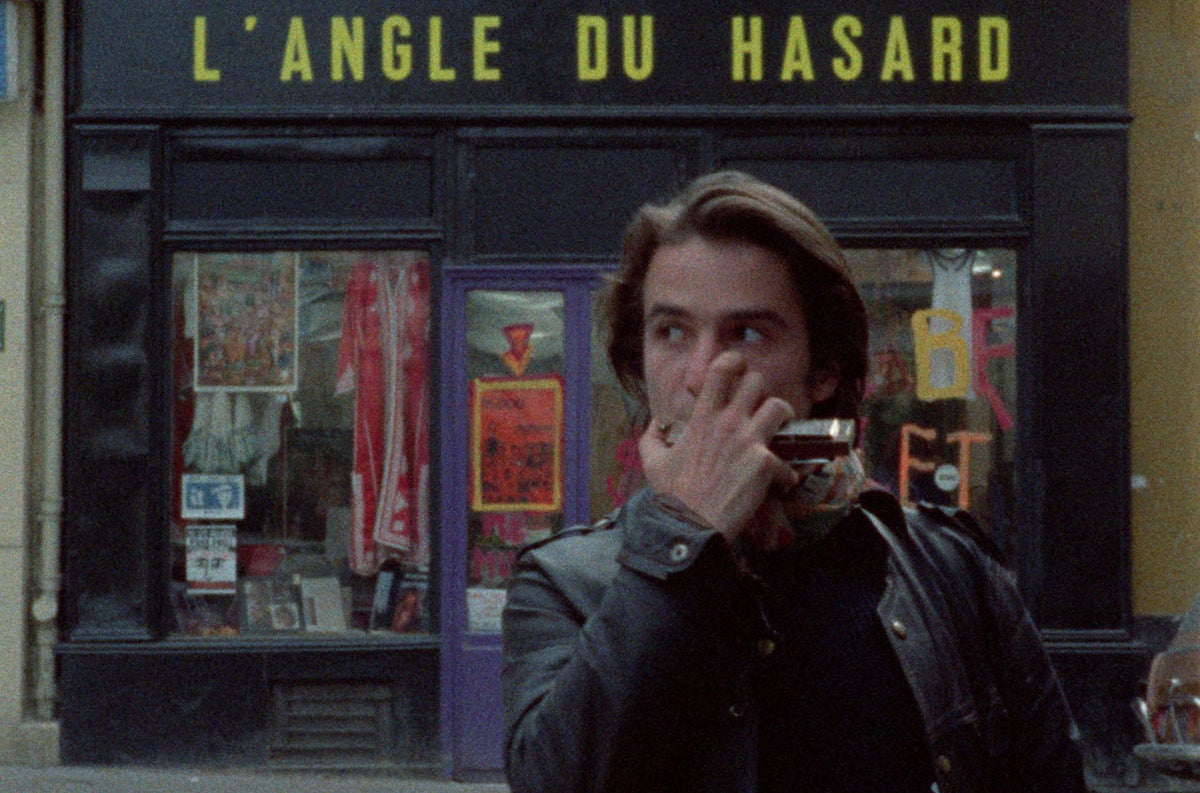
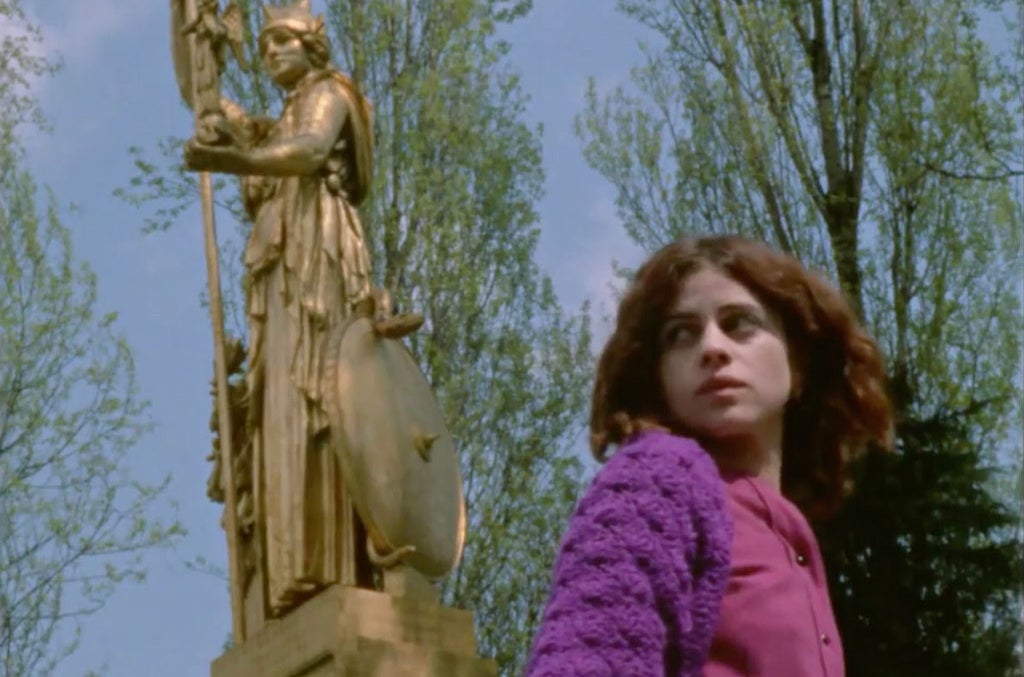
All the high drama of coded notes and purloined letters, of blackmail and a man who's been missing for six months — it's all swirled in with more intimate developments and grounded, sometimes silly details. The movie has dozens of characters, and one of its most influential never appears onscreen.
There are power struggles in the theater troupes and there's a disagreement over who's allowed to come to rehearsal. A character who's married frets over a crush she's developed on another man. Frédérique, a character who's both childlike and cunning (Berto has this intriguing face full of downturned curves that the camera lingers over), entertains herself in her tiny apartment by playing cops and robbers alone and fooling around with knives.
Like the characters in search of the Thirteen, we gaze at the pieces of Out 1, searching for patterns and evidence of a larger plan. But it's not opaque — it just feels too big to hold in your vision in order to examine it in its entirety. Sometimes it feels too much for the camera, which briefly cuts to black like a pair of eyes blinking, breaking up the long takes Rivette favors. In the end, in a scene by the ocean, all the ’60s-are-over disillusionment with which the film is steeped coalesces into a conversation about a breakup between two characters whose connection, until that point, was unclear.
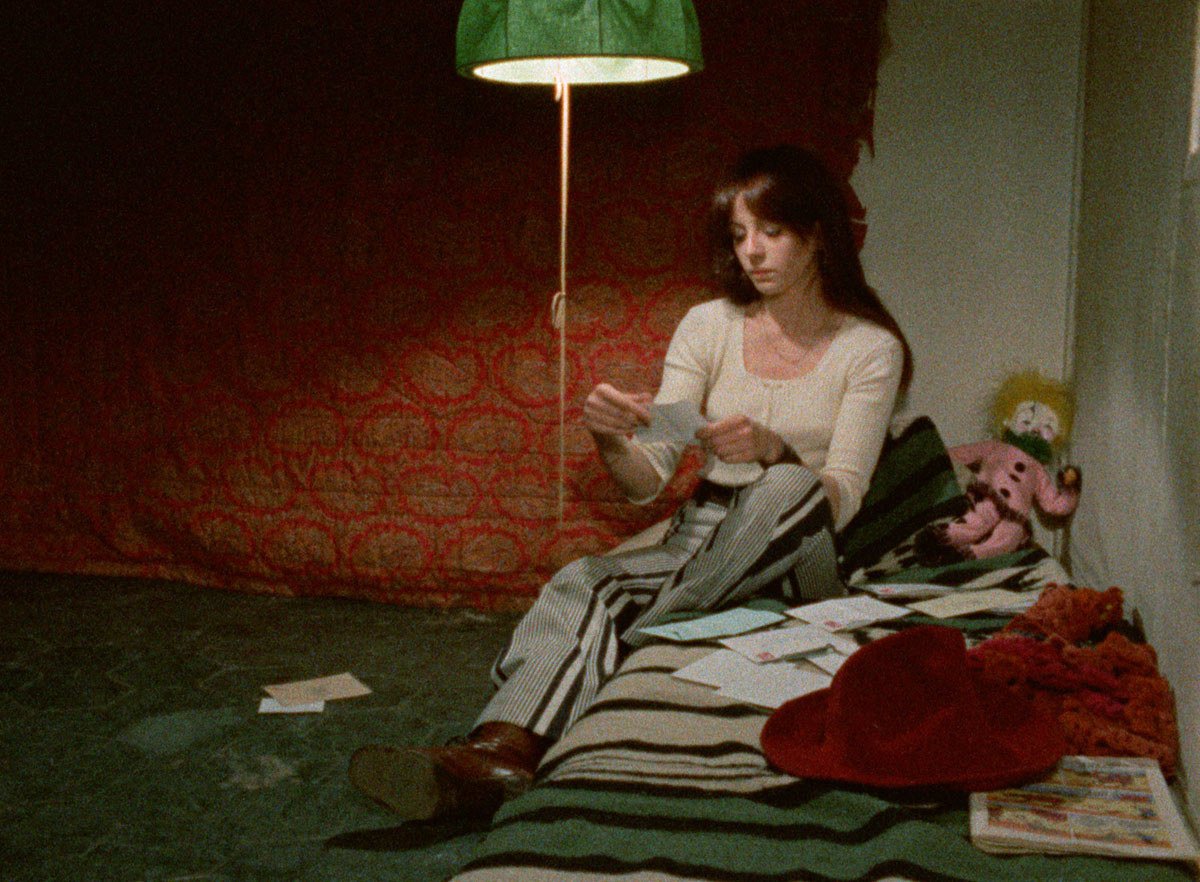
It's offseason, and the beach is wide and empty, and these two people we've been watching for hours wander down it, detailing the professional and romantic relationship they used to have. Suddenly everything we've watched is cast in terms of their breakup, their split a micro version of a greater heartbreak — the two reminiscing about a period of paradise that maybe never existed either, but that one of them thinks he can get back. It's a simple and not particularly dramatic scene that still knocks you flat, because it comes with the shored-up weight of everything we've seen before, given a new, mournful context.
So Out 1 is long, yes — it's super goddamn long — but not in vain, because it uses time like another tool in its arsenal, like music and framing, accruing its own history. And it's funny that for all that "we're in an ADD age," we're actually a lot more accustomed to longform storytelling now than when Out 1 was made, with our marathon viewing and serialized dramas, some of which take just as long to get going as Rivette's movie. Watching 13 hours of something is treated less as an act of endurance than one of indulgence, described with the same term used for scarfing an entire tray of cookies — bingeing. Out 1 shouldn't be so scary.
Rivette, who's 87 now, and who made many features before and since Out 1, including Celine and Julie Go Boating, reportedly thought his film would end up on French television, though he hated the idea and wanted it for the big screen — hence the eight episodes. Out 1 is, in other words, designed to be binged, though in a way, that's less cozy and accommodating than curling up with Netflix for a lazy Sunday. It requires a theater, and it requires opting in — though that, as I said before, is the hard part. After that, all that's left is to surrender to a movie that's like a new country ready to be explored.
